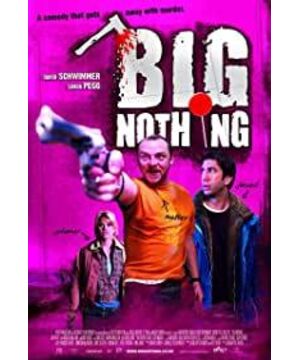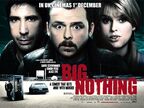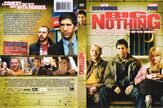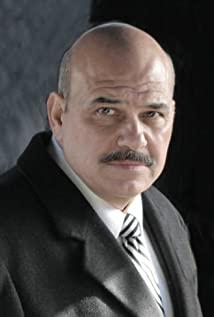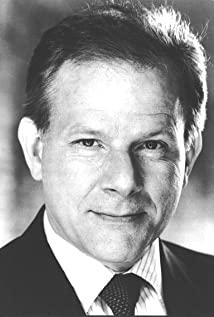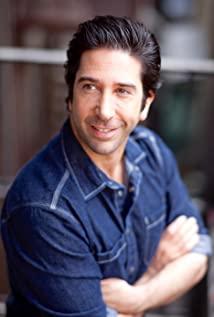I saw this film once four years ago, and at that time I thought the screenwriter would really make it up.
The two most prominent points are used in this film:
1. A person is forced to do a thing that he is not good at, and it can be expected that there will be a lot of possibilities in the process of this thing.
2. The things in the plan are always changing, until things develop out of time and space.
The structure does not use multi-line narrative, and the story is told in a sequential manner.
A man with a Ph.D. with dreams of being a writer, suffering from a strange disease of his own and struggling with his family life, but he has a wife who understands that he loves his wife very well. This is the most tender part of the film, so the film comes up with the scene of the protagonist's daughter swinging on a swing.
Such a person with a sense of responsibility, responsibility and dreams, entered a telephone service company as a customer service staff, and his "mentor" is precisely a master of lies with a human face and a beastly heart.
The partner used the protagonist's tenderness to tell him about his "tragic" situation. The screenwriter thought very well. Where is the softest? Of course, it is the life and death of one's own flesh and blood. The first trick is to win sympathy.
The second trick, tell the plan!
At this time, the screenwriter has designed a premise very well, and the work that the protagonist just took over is also lost. So under the instigation of his partner, the protagonist took a risk. But there was no turning back.
At this time, something unexpected happened, and a third person intervened. From the moment this person appeared, I had a hunch that things would definitely be twists and turns.
Before the action, I remembered a careful plan, but there were variables at the beginning.
The demand for 100,000 from the other party has soared to 200,000. This change is interesting.
Then the plan collided with someone else's plan. When the partner stepped into the pastor's house, the pastor was not there at all, but a gun was pointed at himself.
Changes also occurred at the bar. The blind man at the gas station was not at the gas station, but went to the bar to celebrate his birthday.
The protagonist panicked and went to the pastor's house to find a partner. At this time, he saw the terrible scene in front of him, lying alone with a pool of blood beside him. The protagonist's actions at this time are understandable. He regards the person in front of him as a priest, thinking that this person is dead, and wants to destroy the evidence.
But who knows that this person is not dead, nor is he a pastor.
Just when the two of them wanted to leave, and they had already left, and they turned back because they lost something, this place used skills and was interesting.
But after returning to the crime scene, what I was afraid of happened.
When a person does something wrong, he is afraid that the matter will be exposed, and that others will find out, the audience will feel nervous, and once the matter is exposed, the audience will see how to deal with it?
The next paragraph is very interesting. The screenwriter buried several points, one is blood, one is CD, and one is the secret in the manhole cover septic tank.
When the police come here, they must question these three points one by one, and then they will have a sense of urgency.
At the moment when the last manhole cover is about to be lifted, the turning point takes place. The police were beaten up.
What to do with the beaten police is a question. But the police affairs are put aside for
now . It is a mess now. The protagonist wants to quit and turn himself in, and the two have internal conflicts.
This scene is very important. The dead person doesn't know who it is, and the two of them are confused.
Just when the protagonist was about to turn himself in, another character appeared. The pastor's wife.
This person explained very important information and explained their plan. The more explosive information here is that there are two million in cash.
The pastor's wife tried to shoot at the awake police officer, threatening them to tell them where the money was.
At the critical moment, a third person appeared and killed the pastor's wife.
Now it's wrong and wrong, no one thought of it.
In order to save themselves, the police said that there is still room for recovery. And now that the two million has been found, the police want to take the opportunity to escape.
They were caught by the three, and when they were going to the toilet and trying to escape, the three discovered their partner's major secret outside. Internal conflicts intensified. At this time, the key person, the policeman, died and the witness was gone, and the plan was changed again accordingly.
At this time, everyone has to brainstorm and start dreaming. Create car accidents, make up stories, make up stories fiercely. At this time, I felt that the screenwriter seemed to have a lot of research on criminal psychology.
Much of what happened next was unexpected.
When we write something, often before we write, we also do the work of sizing up the characters and the story. But the difference is that none of us can tell stories. No one else can turn their minds. It is interesting to only know that there should be arcs on the characters, but not to know the fickle plot.
View more about Big Nothing reviews


